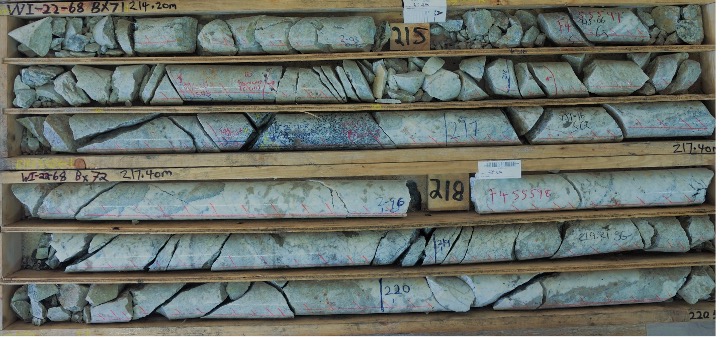Defense Metals Corp. (TSXV:DEFN) has welcomed favourable comminution results on multiple samples extracted from the Wicheeda rare earths deposit in British Columbia.
The data allows the design of the crushing and grinding plant that will be an integral part of the planned Wicheeda development. These data are essential inputs to the upcoming pre-feasibility study (PFS).
Comminution, i.e., crushing and grinding, will be the first step in the processing of material mined from the Wicheeda deposit. In the process, coarse, as-mined, rocks are reduced in size to sand-like particles, typically less than 1.0mm in size, and suitable for upgrading by flotation or other means. Comminution usually accounts for a significant percentage of the energy demand, production cost and carbon footprint of a mineral processing plant.
Metallurgy Advisor, John Goode, said the comminution tests on 17 variability samples and a Master Composite show that the ore is soft, amenable to conventional grinding operations and has a low abrasion index.
“The recent results confirm and expand on data obtained from a 30t bulk sample taken in 2019. The data show that a conventional semi-autogenous grinding (SAG) mill-ball mill circuit will work well and that grinding energy and supply costs will be relatively low.”
Key Highlights:
- The Wicheeda variability samples and Master Composite were studied using the industry-standard SMC test to determine amenability to, and sizing design parameters for, SAG processing. The A x b value averaged 97 and the SAG Circuit Specific Energy (SCSE) averaged 7.0kWh/t indicating a very soft ore.
- The Bond rod mill work index test was applied to the Master Composite and returned a value of 10kWh/t – which again indicates a very soft feed material.
- The Bond ball mill work index test was applied to all samples and resulted in an average of 10kWh/t using a 65-mesh closing screen. This again indicates a very soft feed material.
- A standard Bond abrasion test was performed on the Master Composite and returned a value of 0.059g meaning a very low consumption of grinding balls and mill liners is anticipated.
- The Bond ball mill work index and abrasion index data for these new samples are very similar to the values obtained on the 2019 bulk sample taken from the Wicheeda deposit giving additional confidence in the new data. Comminution data for the 2019 bulk sample were used during preparation of the 2021 Independent Preliminary Economic Assessment (PEA).
Methodology
Seventeen variability samples and a Master Composite were made from drill core taken from the Wicheeda deposit. The variability samples covered different lithologies, depths, areas and grades of the deposit. The Master Composite had a mass of 260kg and included all lithologies in the approximate ratios of their mass in the deposit.
SGS Lakefield performed all of the comminution tests. The SMC testing protocol is an industry-standard method of evaluating the amenability of material to grinding in a semi-autogenous grinding (SAG) mill. The Bond rod and ball mill indices and abrasion index are also industry-standard tests performed on crushed ore and are essential to the accurate sizing of a grinding circuit.
The comminution data will be used, along with other information, during the upcoming pre-feasibility study (PFS) to design the comminution circuit for the Wicheeda project.
For further information please visit: https://www.defensemetals.com/












